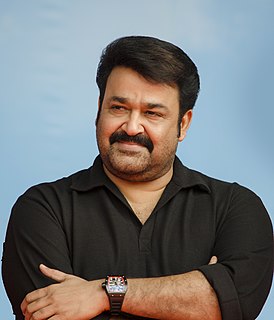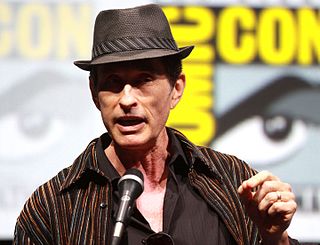A Quote by Martin Scorsese
The storyboard for me is the way to visualise the entire movie in advance.
Related Quotes
Of course there's a value in a storyboard if you do a big - let's say an action movie and actors have to move and act in front of a green screen because entire backgrounds exploding and cars flying through there have to be created separately, and in this case you better make sure the actors are precisely placed and the background action is moving in a certain moment, for this type of film you would need a storyboard.
I generally go into a movie with a very strong vision, with how I want to make the film, how I want to shoot the film, how I want to edit the movie, what I want the sound to sound like. So I have a very concrete idea even if I don't storyboard it, I know exactly what I want to do once I get into the sequence. Now having said that, I try not to let that slave me to the process. So if I do storyboard a sequence I don't necessarily stick to it if I discover more exciting things on set.
In Korea is what I do is I watch the playback of each take with all of the actors and spend a lot of time discussing each take. Also, I use the process we call auto-assembly because I storyboard my entire film right at the beginning, even before pre-production ever begins, so my vision is already laid out on the storyboard for everybody to share. It enables the on-set assembly person, as we call them, to cut together each take into a sequence. This enables a director to review the take within the context of the sequence of the scene.
I do all my work by storyboard, so as I draw the storyboard, the world gets more and more complex, and as a result, my North, South, East, West directions kind of shift and go off base, but it seems like my staff as well as the audience, doesn't quite realize that this has happened. Don't tell them about it.
I do all my work by storyboard, so as I draw the storyboard, the world gets more and more complex, and as a result, my North, South, East, West directions kind of shift and go off base, but
it seems like my staff as well as the audience, doesn't quite realize that this has happened. Don't tell them about it.
I like to use a bit of chaos when I shoot. I think it may be something from the way I shot my first film - I was very scared, of course, and I prepared everything, I wanted to make sure that the characters did the right thing at the right time on the storyboard. But then I realised that in life, there is so much more than what you can predict or write in advance, that when you shoot the story, it's good to leave some gaps where you lose control. I think this combination of chaos and organisation gives a kind of quality.




































